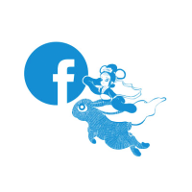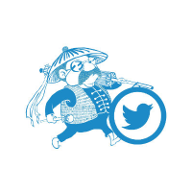









10 November 2018 by Suyen Hu
The way I love design is like the way a fish cannot survive without water. But people often say that the obsession with a dream may burn us. Perhaps it is this burning passion that reduced me to tears when I first saw a Venetian mask of a beautiful clown with shining tears on the cheerful cheeks. I know what the artist who made the mask wanted to say.
Even since, I have been trying to discover the way to convey my ideas truly in depth together with a visually conspicuous form. I’ve found writing to transcend my design concepts and I’ve found ancient wisdom to enrich my design ideals. With the magic permutation of words and images, I can laugh away lightly and share humorously my life stories of the difficult and painful battles like the crying clown.
Is it the tears that brings us happy laughter or is it laughter that give us happy tears?
I fled from Taiwan to seek a new life, away from professional jealousy and malice, and from a family who were unable to comprehend and unwilling to support my intellectual being. Taiwan is too small for you, my friends told me. It will suffocate you. Make a new life and you will give hope to all of us.
Abandoning a promising career which had just been blighted by the disaster of SARS, I left Taiwan on an impulse, unprepared. I arrived in England on a one-way ticket, with little money and with only a basic knowledge of the language. I discovered I had even forgotten to pack warm winter clothes in my single suitcase.
The ancient air of Oxford roused my nearly forgotten mediaeval dream and brought the fantasy into reality to show me how an academic world can be so interesting and meaningful for our daily life. However, I then realized that I was not capable of enjoying the mediaeval air without restraint because of my limited knowledge of Western culture and the English language.
As I struggled with my studies for my Master’s degrees I unexpectedly found the positive and imaginative way that I had been looking for to interpret my life: my English language tutor suggested that poetry might be a refreshing change from text-books and a stimulating way to think about meanings, language and culture. He sent me letters with carefully selected poems and explanations which I could understand. At first I thought English poems would be too difficult for me, but as the ideas surrounding them were patiently explained they gradually helped me to understand and mend my own life and to achieve a life of the mind, yet one rooted in the reality of society.
The poems stimulated my memories and thoughts, and in this way the manuscript of Dear Su Yen began. It starts with significant events from my childhood, but most of the manuscript concerns my experiences as an international student trying, as thousands of others do, to survive and make my way in a strange culture. My story shows my progress from being an inarticulate stranger to three years later finally taking part in a traditional British Christmas where I felt that I belonged at last. Inter-leaved with these experiences are the relevant poems and their contexts which become more significant as the story proceeds. I soon discovered that the poems, and their links with painting, architecture and history, were helping me to interpret and live my life within a universal and imaginative context and to form a more balanced view of the world.
I hope that the book may help others to do the same.